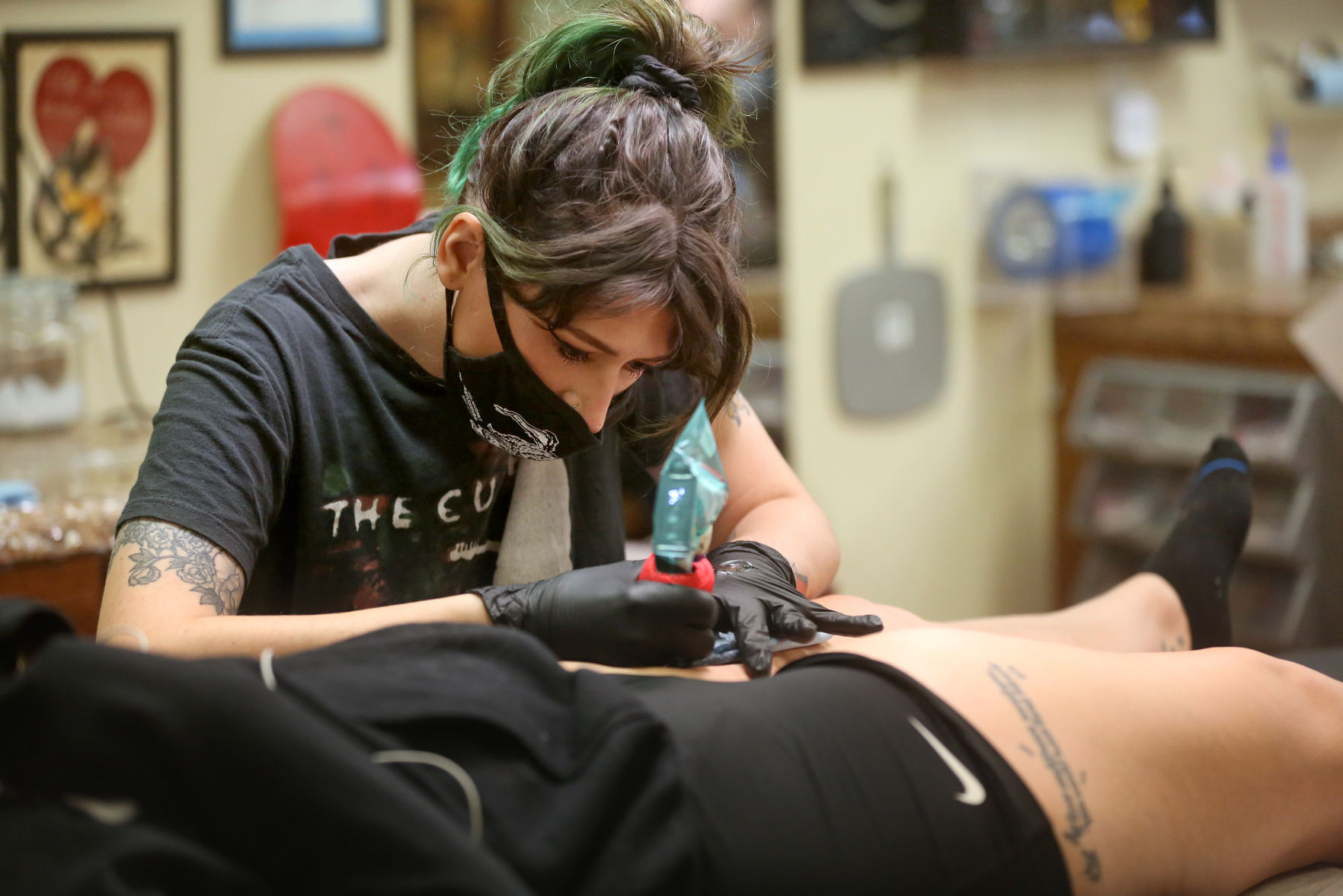When Morgan Hazer started her apprenticeship as a tattoo artist about a year ago, she was able to bolster her portfolio with the abundance of walk-in clients that INK Tattoo Studio in Dubuque had every day.
The small, unique tattoos not only furthered her artistic abilities but helped her gain more clientele and build confidence.
But after the COVID-19 pandemic began, all of that extra practice ended.
“(Walk-ins) are typically for apprentices and getting into the routine of taking on clients and being on the spot,” Hazer said. “Without that, I am not having as much to practice different designs. I have mostly been working on friends and their referrals. I think it has probably slowed my progress down, but not much overall.”
Walk-in clients were what helped Mark Weiland build his career and get him started many years ago, he said.
“In the past, anyone could walk in off the street and do some lettering and small design work,” said Weiland, the owner of INK Tattoo Studio at 1090 University Ave. “It helps build confidence, too, when you are dealing with a new person every day. Conventions, travel and other business trips and networking have been almost completely severed, removing a crucial component of our career and learning.”
For other industries, the pandemic’s effects on apprenticeships have differed.
With classes at West Delaware High School in Manchester, Iowa, on a hybrid schedule, Carter Peyton, 18, has more time to spend working at Henderson Products in Manchester as a welding apprentice.
“It has given us more time to make more money,” he said. “We are able to go in earlier. We can work more and learn more.”
Thomas Kenny, weld engineer with Henderson Products, said apprentices such as Peyton now have more time to gain experience.
“Last year when COVID occurred, (apprentices) kind of benefited a bit,” he said. “They had the option if they wanted to to come in and get more hours with COVID flaring up.”
This year at West Delaware High School, industrial technology instructor Chad Sellers said he has needed to change up the way that he teaches masonry and electrical courses. He now teaches masonry in person and electrical virtually.
“It’s really hard to teach electrical when it’s supposed to be all hands-on,” Sellers said. “About the extent of it is finding some YouTube videos that they can watch in their own time. Last year, I recorded myself doing actual electrical work.”
Although the electrical work has been different than what Reily Dolan, 17, and Trent Deutmeyer, 15, expected, they said they’ve made it work by learning from the videos and textbook.
“With the electricity, I thought it was fun wiring the circuits,” Deutmeyer said.
Seth Harms is a West Delaware industrial technology instructor who works with students completing welding apprenticeships. He said that for students like Peyton, the pandemic has actually had a positive impact.
“I think the students benefited and were able to juggle their online instruction and their work experience,” he said.


